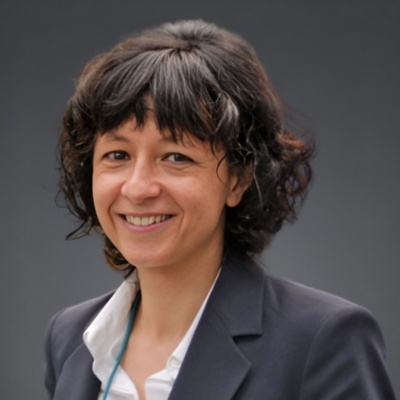
Emmanuelle Charpentier
Scientist and Nobel laureate, pioneer in the CRISPR technique. Her work revolutionized biomedicine and gene editing. She inspires with her innovative vision and ethical commitment, showing how science can transform the future of humanity.
Biography / Speaker Info
Emmanuelle Charpentier is a leading French microbiologist, biochemist and geneticist, recognized worldwide for her pivotal role in the development of the revolutionary gene editing tool CRISPR-Cas9. Her career is a clear example of perseverance in basic science, culminating in a technological breakthrough with the ability to transform medicine and the understanding of the code of life. With his focus on bacterial infection mechanisms, Charpentier has set a milestone in global biotechnology.
His academic training began at the Pierre and Marie Curie University in Paris, and he obtained his PhD in Microbiology at the prestigious Pasteur Institute. After postdoctoral research at various institutions in the United States, he returned to Europe, developing his career in countries such as Austria and Sweden. It was at Umeå University (Sweden) that she conducted the seminal research that led to the discovery of trans-activating RNA (tracrRNA), an essential component of the bacterial immune system CRISPR-Cas9.
The most important milestone in her career came in 2012, when, in collaboration with American biochemist Jennifer Doudna, she published work demonstrating how the CRISPR-Cas9 system could be reprogrammed and used as a precise tool to cut and edit any DNA molecule at a predetermined site. For this development, both scientists were awarded the Nobel Prize in Chemistry in 2020, the first time a Nobel Prize in science was awarded exclusively to two women.
Emmanuelle Charpentier currently resides in Germany and is the Founding Director and Scientist of the Max Planck Unit for Pathogen Science in Berlin. Her work has been recognized with multiple awards, including the Princess of Asturias Award for Technical and Scientific Research. Her legacy is measured by the impact of CRISPR, which has accelerated research into gene therapies for disease and opened the public debate on the ethical uses of genome editing.










